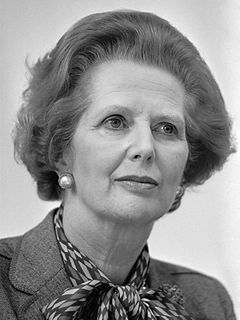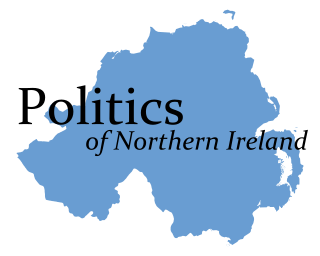
Seamus Frederick Mallon was an Irish politician who served as deputy First Minister of Northern Ireland from 1998 to 2001 and Deputy Leader of the Social Democratic and Labour Party (SDLP) from 1979 to 2001.

The Northern Ireland Assembly often referred to by the metonym Stormont, is the devolved legislature of Northern Ireland. It has power to legislate in a wide range of areas that are not explicitly reserved to the Parliament of the United Kingdom, and to appoint the Northern Ireland Executive. It sits at Parliament Buildings at Stormont in Belfast. The Assembly was in a period of suspension until January 2020, after it collapsed in January 2017 due to policy disagreements between its power-sharing leadership, particularly following the Renewable Heat Incentive scandal. In January 2020, the British and Irish governments agreed on a deal to restore devolved government in Northern Ireland.

The Welsh Government is the devolved government of Wales. The government consists of ministers, who attend cabinet meetings, and deputy ministers who do not, and also of a counsel general. It is led by the first minister, usually the leader of the largest party in the Senedd, who selects ministers and deputy ministers with the approval of the Senedd. The government is responsible for tabling policy in devolved areas for consideration by the Senedd and implementing policy that has been approved by it.
The Northern Ireland Executive is the devolved government of Northern Ireland, an administrative branch of the legislature – the Northern Ireland Assembly. It is answerable to the assembly and was initially established according to the terms of the Northern Ireland Act 1998, which followed the Good Friday Agreement. The executive is referred to in the legislation as the Executive Committee of the assembly and is an example of consociationalist ("power-sharing") government.
The Sunningdale Agreement was an attempt to establish a power-sharing Northern Ireland Executive and a cross-border Council of Ireland. The agreement was signed at Sunningdale Park located in Sunningdale, Berkshire, on 9 December 1973. Unionist opposition, violence and general strike caused the collapse of the agreement in May 1974.

The Anglo-Irish Agreement was a 1985 treaty between the United Kingdom and the Republic of Ireland which aimed to help bring an end to the Troubles in Northern Ireland. The treaty gave the Irish government an advisory role in Northern Ireland's government while confirming that there would be no change in the constitutional position of Northern Ireland unless a majority of its people agreed to join the Republic. It also set out conditions for the establishment of a devolved consensus government in the region.

Kieran McCarthy is a retired Alliance Party of Northern Ireland (APNI) politician. From 1998 to 2016 he was a member of the Northern Ireland Assembly for Strangford. He served as Assembly chief whip for APNI in the Assembly.

The Northern Ireland Constitutional Convention (NICC) was an elected body set up in 1975 by the United Kingdom Labour government of Harold Wilson as an attempt to deal with constitutional issues surrounding the status of Northern Ireland.

The Northern Ireland Assembly established in 1982 represented an ultimately unsuccessful attempt to restore the devolution to Northern Ireland which had been suspended 10 years previously. The Assembly was abolished in 1986.

Ireland–United Kingdom relations, also referred to as Irish–British relations or Anglo-Irish relations, are the relations between the states of Ireland and the United Kingdom. The three devolved administrations of the United Kingdom, in Scotland, Wales and Northern Ireland, and the three dependencies of the British Crown, the Isle of Man, Jersey and Guernsey, also participate in multilateral bodies created between the two states.
The Department for Communities is a devolved Northern Ireland government department in the Northern Ireland Executive. The minister with overall responsibility for the department is the Minister for Communities. The department was previously created in May 2016 following the Fresh Start Agreement and the dissolution of several departments, such as the Department for Social Development, the Department of the Environment, the Department of Culture, Arts and Leisure and the Department for Employment and Learning from which several functions have amalgamated.

The Northern Ireland Assembly was a legislative assembly set up by the Government of the United Kingdom on 3 May 1973 to restore devolved government to Northern Ireland with the power-sharing Northern Ireland Executive made up of unionists and nationalists. It was abolished by the Northern Ireland Act 1974.
The term Junior Minister, in Northern Ireland, is the name given to two positions in the Executive Office, a department in the Northern Ireland Executive answerable to the First Minister and deputy First Minister.

The Executive Office is a devolved Northern Ireland government department in the Northern Ireland Executive with overall responsibility for the running of the Executive. The Ministers with overall responsibility for the department are the First Minister and deputy First Minister.

The First Minister and deputy First Minister of Northern Ireland are the joint heads of government of the Northern Ireland Executive and have overall responsibility for the running of the Executive Office.
A power-sharing Northern Ireland Executive was formed following the Northern Ireland Assembly elections of 1973. The executive served as the devolved government of Northern Ireland from 1 January 1974 until its collapse on 28 May 1974.

Since 1998, Northern Ireland has devolved government within the United Kingdom. The government and Parliament of the United Kingdom are responsible for reserved and excepted matters. Reserved matters are a list of policy areas, which the Westminster Parliament may devolve to the Northern Ireland Assembly at some time in future. Excepted matters are never expected to be considered for devolution. On all other matters, the Northern Ireland Executive together with the 90-member Northern Ireland Assembly may legislate and govern for Northern Ireland. Additionally, devolution in Northern Ireland is dependent upon participation by members of the Northern Ireland Executive in the North/South Ministerial Council, which co-ordinates areas of co-operation between Northern Ireland and the Republic of Ireland.

In the United Kingdom, the Joint Ministerial Committee (JMC),, is a consultative body established by a memorandum of understanding between the UK Government and devolved administrations in Scotland, Wales and Northern Ireland. It was created in 1999 by Tony Blair's Labour government. The JMC seeks to act as a focus for the coordination of the relationships between these administrations.

The Renewable Heat Incentive scandal, also referred to as RHIgate and the Cash for Ash scandal, is a political scandal in Northern Ireland that centres on a failed renewable energy incentive scheme that has been reported to potentially cost the public purse almost £500 million. The plan, initiated in 2012, was overseen by Arlene Foster of the Democratic Unionist Party (DUP), the then-Minister for Enterprise, Trade and Investment. Foster failed to introduce proper cost controls, allowing the plan to spiral out of control. The scheme worked by paying applicants to use renewable energy. However, the rate paid was more than the cost of the fuel, and thus many applicants were making profits simply by heating their properties.












